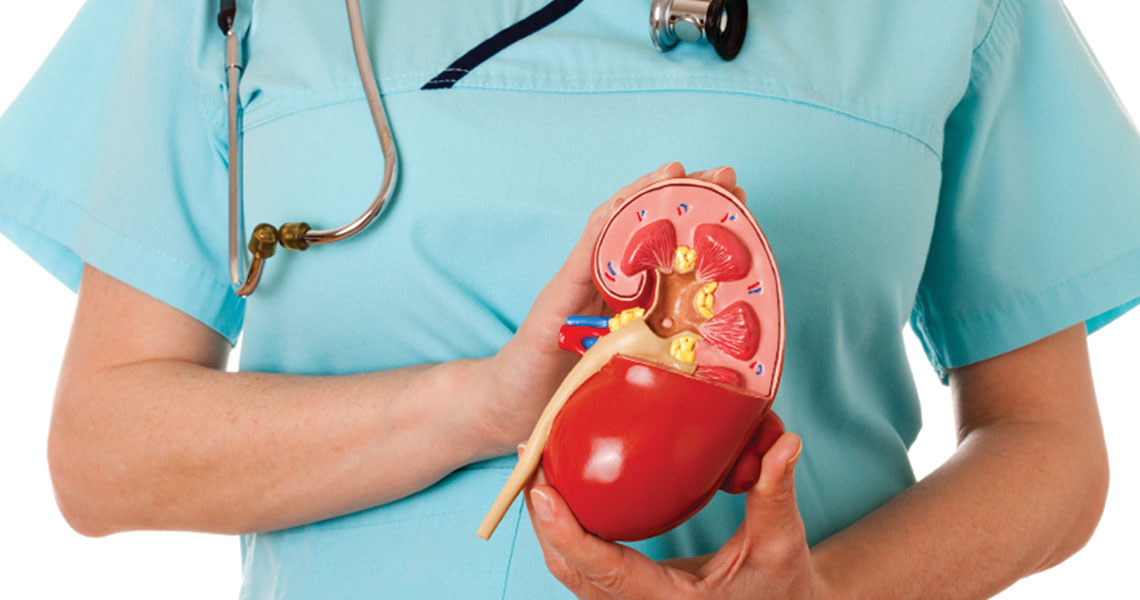
Nephrology
Nephrologist is the specialist, who deals with diagnostics, treatment and prophylaxis of renal diseases. The name of the given medical field originates for the Latin word nephros which means “kidney”.
What symptoms require referral to nephrologist?
- Increased or reduced volume of daily urine;
- Urine colour or odour change. Abnormal urinary analysis: proteinuria (protein in urine); hematuria (blood in urine).
- High blood pressure; increased pressure in juvenile age
- Renal failure – unfortunately, it has no symptom at the early stages, its onset can be identified only based on abnormal laboratory findings – increased creatinine and blood urea.
- Inflammatory diseases of urinary system – cystitis, pyelonephritis.
- Edema.
States, which require nephrologist’s consultation and follow-up:
- Diabetes mellitus, regardless of the presence of diabetic nephropathy
- Chronic renal insufficiency
- Drug-induced renal injury (long-term administration of analgesic agents, diuretics or other medicines)
- Acute and chronic glomerulonephritis
- Acute and chronic pyelonephritis
- Renal damage in patients with systemic diseases: systemic lupus erythematosus, rheumatoid arthritis, widespread vasculitis
- Arterial hypertension
Patients with renal diseases undergo complex examination. RADC for the given purpose involves the advanced diagnostic techniques: laboratory (including immunological, biochemical, microbiological tests), ultrasound (including doppler sonography of renal arteries), radiologic (urography, SCT angiography, renal SCT with contrast enhancement), consulting by specialists from the adjacent fields.
Quite often, for the purpose of diagnosis specification it is necessary to perform renal biopsy. Puncture nephrobiopsy is the key diagnostic method within nephrology. Its application makes it possible to determine not only the nature of a disease, but also to opt for efficient therapy, to estimate disease prognostication. Morphological examination includes light, immunohistochemical and electronic microscopy. Manipulation is performed on impatient basis, in the setting of up-to-date operating room, under ultrasound control, under local anesthesia performed by experienced urologists.

